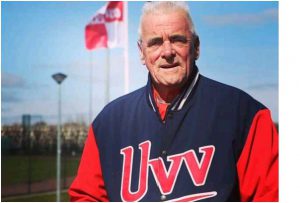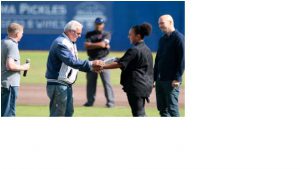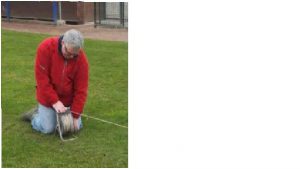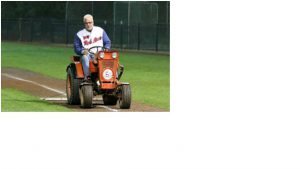- Navigatie
- Home Plate
- Over UVV+
- Historie
- Wall of Fame
- Bestuur & Staf
- Commissies
- Bijzondere clubleden
- Huisregels
- Vrijwilligerswerk
- Downloads
Informatie+InformatieWat is BeeBallWat is HonkbalWat is SoftbalLid worden+Jouw verenigingTrainingen en wedstrijdenKleding & materiaalContributieAVG en privacyInschrijvenOpzeggenTeams+Honkbal Heren 2Honkbal Heren 3Honkbal U21-1Honkbal U21-2Honkbal U15-1Honkbal U15-2Honkbal U12-1Honkbal U12-2Honkbal U12-3Honkbal U12-4Softbal Dames 1Softbal Dames 2Softbal Dames 3Softbal Heren 1Softbal Heeren 2Softbal U15-1Softball U12-1Beeball Majors 1Beeball Rookies 1Sponsoring+Onze visieMogelijkhedenOnze sponsorenClub van 100Contact+Contact gegevensRoutebeschrijvingRoosters+Kantine dienstenEK Softbal 2024
-

 Long before the players arrive field preparation is underway
Long before the players arrive field preparation is underway Met dank aan:
the article is written by European Baseball Magazine and provided with our permission. see also www.baseballEBM.com
https://www.facebook.com
Photo: Jan Kruijdenberg FotografieA team is more than just the guys on the field. It’s the front office staff that stays late at night selling tickets; and the photographers that capture moments that will entice fans to the park; and it’s the grounds crew that comes hours before a game, in any weather, to ensure that, come game time, the field is a pristine playground.
Many parks throughout Europe rely on their team to maintain the field, splitting the duties amongst the players.
In Utrecht, Holland however, team UVV has relied on one man over the last 30 years,Frans van Elst. Now in his 70s, Frans has begun training his apprentice, René Bransen. BaseballEBM sat down with both men to discuss
a day in the life of a groundskeeper at The Paperclip.How did you get started as a groundskeeper?
Frans: I was a professional soccer player. I was goalie for Elinkwijk before a broken ankle ended my career. I saw an article in the newspaper so I became a baseball fan. From the first day, always.Why?
The atmosphere. The game. I didn’t know the game but I asked plenty of people the rules and so I became an expert. I read many books, watched videos and I learned all of baseball.
I must learn English now too because, as of this year, we have an American coach. How do you go from being a fan to taking care of the stadium? There was an old man before me. I was looking at how he did his job and just kind of took over.
The lines on the field were really squiggly.
That was my start. Now we make the best lines. Go Holland!
What makes you stay? The love of the game.
Rene: About three years ago Frans and I met each other at the field. I supported the club. When Frans and I began to talk about UVV and baseball, we had a lot in common. That’s how it started. Frans and I had a lot to talk about, mostly about baseball. Frans took me to help him with the grounds work. He was on his own. The work is heavy for one person. There is a lot of respect between Frans and me.
Our friendship grows and grows and has become bigger and bigger. Well he’s my best friend; he’s my best friend. We clicked from the start. Frans and I understand each other. On the field we don’t have to say anything. We know what we are doing. When he retires someone has to coach the new person. That costs plenty time. I think that’s the most difficult to do, to teach someone to prepare the field.
After his retirement, we will stay in contact because of the love of the game.Brings us through a typical game day.
R: Mostly it depends on the weather outside. Games here start at 2pm. When it’s wet our day starts at 9am. Making the field dry takes about 2-2 ½ hours.How do you do that?
F: We’ll do it by hand; irrigate, make holes in the field, and with a water machine.In America my old coach used to use cat litter to dry out the puddles.
F: We are a poor club we have to improvise. When we hosted the European Championship in 2012, we had diamond dry, that the sponsor paid for, to make the field clear. It was a nice field with the special gravel. Very expensive to use.You make the field dry. You draw the lines and the logo. What else?
F: When it’s finished it’s finished. The lines are the last part of the work.Do you have a tarp for rain delays?
F: Yeah, we have a tarp that the boys put out. I’m an old man and not that strong.After the game what do you do for the field?
F: After the game we clean the dugouts and the field. We even out the home plate area and the pitcher’s plate.Do you drag the field in the 7th inning?
R: During the game the boys are in charge because I become the PA announcer and Frans takes over the scoreboard so we don’t have any time for that.How much work is there after a game?
F: One hour, one hour and a half.
R: When the boys are helping us, it becomes faster.What does the off-season look like for you?
R: The local government repairs the field so in the new season we’ll have a whole new infield.The look on Frans’ face tells me that they will do their best and
then he’ll fix what they do. I ask about that and Frans replies: They will not do it perfect, 100%. 90%. And then you’ll make it right? In unison they reply: yeah!When you are not in season are you at the park every day doing something?
F: During the season every day, or almost every day. After the season when it’s necessary. We make the field winter ready.What are some of the tasks involved in winterizing the field?
F: All the materials are centralized and cleaned. The home and
pitcher plates are removed. Then we make a new mound and new backstop and clean.
In season, but non-game days, what is a typical day at the park?
F: We talk with the local government about the field and how to
make it perfect and we work on it.
R: We work together with the local government. They send some gardener boys and we are a team. For example, when we need new gravel, they have to order it.

These last 30 years did you have a regular jobR: Frans is a retired retail manager for a department store. I was a railway conductor. We are both volunteers. We don’t get paid.
F: In the summer, during competition, I work 40-80 hours a week.What’s your favorite part of doing groundskeeper work?
F: Everything together makes it perfect.
R: For me, that we work together, that’s also fun.
Is there anything you don’t like about the job or make the team do?
R: Working in the rain. But, you know, the boys from the first team, we only work with the men’s teams not the ladies, the team is grateful. When they come, they see a perfect field. They come to us and say, ‘Thank you for the field. It was perfect.’ That’s the best you can get right?
F: 3-4 years ago I did all the fields by myself but I am older and I do
only the men’s first team field now. The rest is for the rest.It’s time for the next generation to do their part?
F: Yes, but no volunteers.
R: To get volunteers is very difficult.Is it because there are no more “physical work” generations coming up?
R: We talk a lot about that. A man of 70-years of age, and a man of 50, make the field ready for the game but who is after us? Nobody knows. It’s not only us. It’s in the whole league, every team. The field crew is about our age on every team.How would you sell the position to the younger generation?
R: You’re not in an office. You’re working outside. The freedom you have. Your boss is not looking at what you’re doing but you have to handle that too. You have to take it seriously.
F: Resolve the problems yourself. 70/50 years old, we’ll know how to handle a problem when they come up but when you’re 20, I can understand that they don’t know anything about it.If they want to learn, what would you encourage them to do?
R: They need to learn to be patient. If you don’t have that, you will never succeed. I’m curious about the Olympics because 2020 is coming soon. You need players but you also need groundskeepers. In Holland there’s nobody. The crowd here is the family, friends and the second club. When it’s busy you have 200-300 fans. The money is the big problem in Holland, probably in all of Europe. To have a sponsor you must be lucky. Baseball in Holland is a small sport.
F: When the clubs pays you, they will come. Not as volunteers but as paid grounds men but that’s an illusion in Holland.
R: At every meeting we have for the club we ask, how to get volunteers. That’s a big issue. Nobody has an answer for that. Everybody in UVV has to pay the board 50 euro more so you don’t have to do the job as volunteers. It becomes a very heavy load because the club volunteers become so small - because everybody is paid, so they don’t have to do it - that you have to do more work. I live 2 km from the field and Frans lives 10km away but he never gets gas money for his car, for example. When the team is away we are still going to the
field to get the equipment together – the balls, the bats, etc.
F: I am the equipment manager.Is there anything you two don’t do?
R: We don’t sleep together. But with UVV we’ll almost do anything.
F: When the first team plays away, the board says, you are the face of UVV and when people ask you questions about UVV you are the man in charge.Is there anything you do as grounds crew that would surprise
people?
R: Everybody is every week surprised that the field is perfect to play on. The away teams often come to us also and say, ‘Thanks for the field. It was perfect!’Is there a special, personal moment for you as a groundskeeper?
R: When it rains the whole week and the whole field is under water, the most proud moment is when we make the field ready so that we don’t have to cancel the game. The first team comes early to help us so they don’t have to cancel and make up the game on a Tuesday. Nobody wants that, but they help us because they respect us also.
F: We do a top job. Last season we only had to cancel one game.
R: But that was last minute rain and plenty of rain. We can’t handle that.
F: Yeah, the storm.
In your 30 years, what’s your special moment?
F: Ooh. Oh yeah. This year made my 30th year as a volunteer
grounds man and I got a surprise party.R: Everybody in UVV knew about it except Frans. It was the All
Star game and before the start of the game they find him and have the party. Everybody was looking at him. His daughter was looking at him also.
F: Very nice.How did it make you feel?
F: The most exciting moment was when I got a present from my
daughter on the field.What was the present?
F: It was a team photo from the 2016 season.
R: They won their last game. After the game there was a team photo and that photo was his present.Was it special because it was a team photo or because your daughter gave it to you or both?
F: My daughter. My daughter giving it to me.When she was young did she come to the park with you?
F: Yes, one year, when I was there 10 years. She was a good softball player. The first year I was at UVV was 1979-1980.Is there anything you want people to know?
F: I don’t know where to start. I have plenty to tell. UVV is my
baby. UVV is, for me, my lifesaver. It kept me stable. It changed my life. Mentally, years ago, I was not stable and UVV was my solution. It gave me my foundation. And the sport is the most beautiful game.What is baseball for you that soccer wasn’t?
F: The atmosphere. The football public is a fighting, aggressive atmosphere. Football hooligans are football hooligans but the baseball community is a big family.
R: Everybody works through each other and also from their opponent and that’s what he prefers, and he likes.The sportsmanship is there on and off the field?
F: Yeah. I am a soccer fan for a club outside my hometown. If I say that to a local, I get punched.
R: That’s the football crowd in Holland. The mentality is totally different. If you say you are not a fan of the local team you have to run for your life! In Holland the police force is doubled during games. Football is war.
F: Baseball is fun.Everything makes sense for me, sportsmanship, compassion, how you treat other people, I learned it in school and church as well but it only stuck with me in baseball. I learned all of that by how people – in and around the baseball stadium – treat one another. That was my clicking spot.
R: Yeah, respect for each other.
F: For me also. The click in the baseball family. Yeah, that’s unique. Open arms.When it’s Rene’s turn to take over for good, will you still be able to come to the games, to feel a part of the community?
F: Always. The love of the game is in my blood. I sit in the dugout for scorekeeping – talk to the players, coach. After 30 years my knowledge is so big I can share so much with the players and coaches about my own experiences.What’s been the most important lesson you’ve learned through your years in baseball?
F: Humanality. Friendship. That’s baseball. The way they treat each other. The whole package makes it perfect – friendship, the game, all together.

